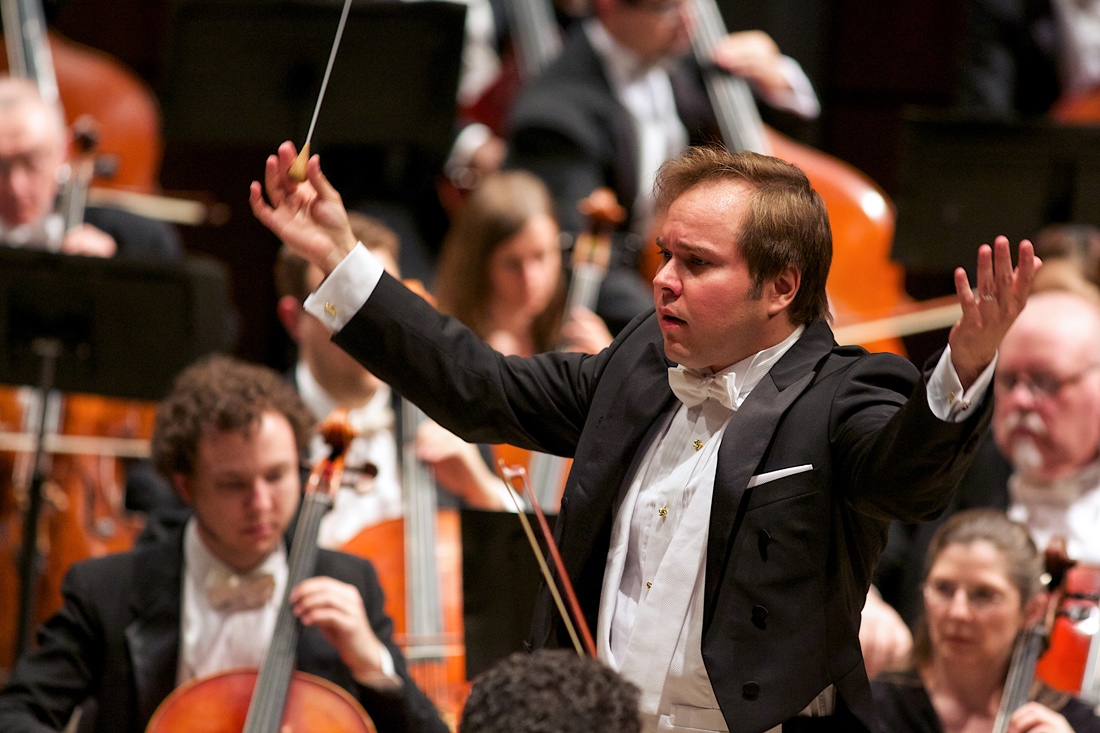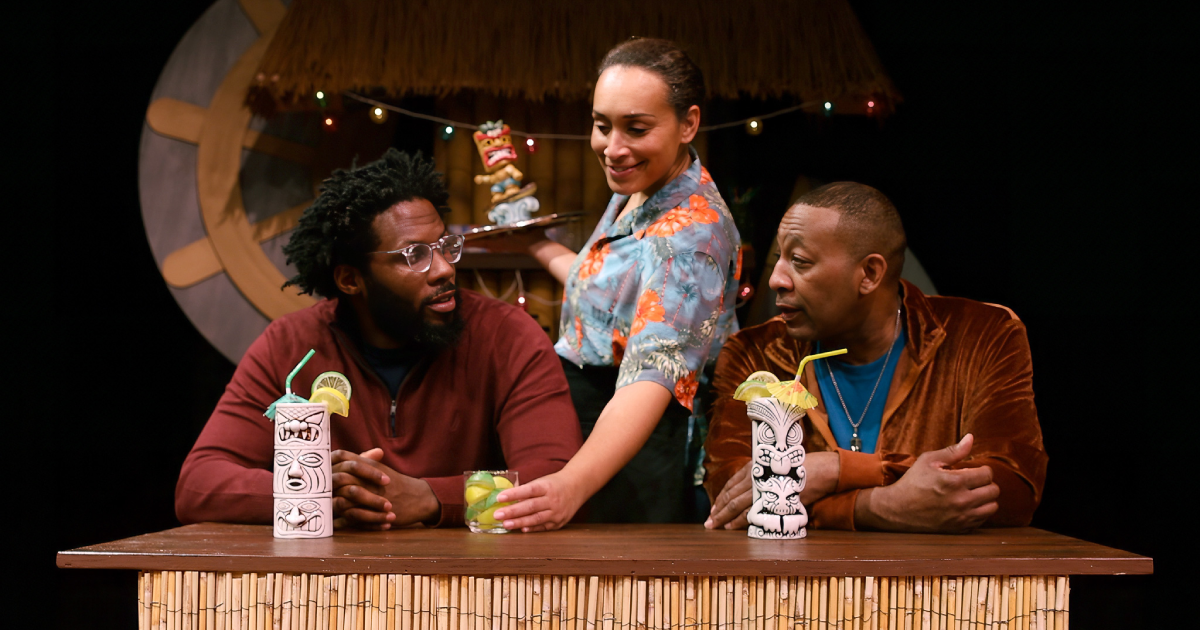For the first time in 17 years, the Grand Rapids Symphony has a new music director. His name, Marcelo Lehninger, reflects his unique heritage. With a Brazilian pianist mother and a German violinist father, Lehninger grew up in Rio de Janeiro surrounded by classical music. After meeting (and falling for) his Coloradan wife, the two moved stateside, beginning a long journey of conducting in various cities all over the U.S.
Now, Lehninger has been selected as the music director — replacing David Lockington, who held the position for 16 years — after guest conducting in both February 2015 and April 2016. While his family currently lives in Florida, they’re moving to Grand Rapids next summer. Meanwhile, Lehninger’s first official performance as new director will be in October, conducting the Tchaikovsky Violin Concerto and Rachmaninoff’s Symphony No. 2.
Revue talked with Lehninger about his interests, his musical philosophy, and his plans for the symphony.
So, getting personal, what do you like to do with your free time?
Free time? What is that? [Laughter] You know, I travel a lot for work. So when I am home, my idea of fun stuff is actually very simple. I like to stay in, cook with my wife, watch a movie, open a bottle of wine. I do like some outdoors stuff, like swimming and bikes. We also enjoy people a lot, meeting new people, going out with friends, having a drink and discovering new restaurants. And I like fashion. … When I move to Grand Rapids, I need to find a house with a big closet.
What are you most excited for, moving to Grand Rapids?
Many things, actually! A lot of people ask me if I’m scared about the winter, but not really. I did live in Boston for five years. Actually for me, being from Brazil, it’s exotic when it’s snowing and it’s cold and you have to put a coat on. Here in Florida … it’s too hot and too humid. I’m excited about moving to a place where you have the four seasons. Oh! And also, the beer. I’m German and I love beer.
What classical music would you suggest our readers listen to?
A composer that I really enjoy and am going to be programming often is Heitor Villa-Lobos. He has some crazy pieces, some that I don’t like, but some beautiful pieces that I love. He was a very creative guy so he composed a lot. The good stuff is really good.
There’s a set of pieces called Bachianas Brasileiras — Bachianas is a word he created, which means basically, “in the style of Bach.” And then Brasileiras of course means Brazilian. Those are beautiful and there’s nine of them.
What other kinds of music do you like?
That’s a funny question. Because I love Brazilian popular music, bossa nova and things like that, but I also love jazz. I have a great admiration for jazz pianists like Oscar Peterson, Erroll Garner, Frank Sinatra sometimes and Miles Davis. I really like that style of jazz ... especially when I want to relax. Also, there’s a person named Tom Jobim, I love his music. It’s mellow, romantic and beautiful. I listen to him a lot.
Based on your experience, what’s the symphony here doing right?
Actually, that had a great impact on me deciding to take the position — the fact that the symphony, both artistically and financially, is in such a great space. It’s really, really wonderful. You have a lot of artists in this country who are struggling. They’re struggling with contract negotiations, with a budget, with fundraising. Grand Rapids in this year finished the $40 million endowment campaign, accomplished a 5-year contract with the musicians, and has a great budget to do interesting things.
How was it working with our musicians?
They’re great, really powerful musicians. Such a friendly, nice group of people. We played a lot of difficult pieces, as well as some that I’m sure some of these musicians have played 100 times. But still, they’re willing to play it as though it’s the first time and give the score a fresh reading.
As music director, you’ll not just be conducting but choosing which pieces to perform. What factors play into those choices?
A big part of my style of programming is to have a nice combination of old and new — ‘new’ meaning both music that has just been composed and older music that the orchestra has never played before. Right now, I’m studying the symphony’s performance history from the past 10 years just to see what they played and didn’t play and what got people excited to attend the concerts. In each city, that’s a little different.
What about your personal tastes?
I always try to bring some South American composers too, of course. I mean, I don’t see any problem playing a Beethoven or Tchaikovsky symphony. A lot of people want that and they’re great pieces! But having a healthy balance is something that I like to do.
You’ll be with the symphony for at least the next five years. What big plans do you have?
I’ll be investing my time and energy trying to connect with a younger audience for sure. My dream — and I have to talk to the staff and administration to make sure we can — but it’s to create a concert experience directed at a specific age group. I’m not sure what yet. Maybe some pre- and post-concert events, something that would be more appealing to leave their house on a Friday or Saturday night. I also want to make friends of my own age and connect with people and meet new people, especially since I’ll be a part of this community and make Grand Rapids my home.
What makes for a good conductor?
It’s interesting. I think actually to ask that question to a conductor is dangerous. [Laughter] It’s better to ask a musician.
Let’s pretend you’re a musician for a second. Same question?
I think what most musicians really look for is if that person will be able to inspire them. At the end of the day, you get your instrument, you go to your rehearsals and you play concerts. You do that and of course it’s your job and how you earn your money, but the reason people become musicians is because they love music. So they’re just trying to find a conductor that inspires them. … What that person’s expecting is to go to rehearsal and play with joy and leave there happy.
What’s your personal philosophy on conducting?
I remember my father telling me, ‘You should never perform a concert just for the sake of performing a concert. Every concert needs to be a special event. You need to perform every single one as if it’s the first and last concert of your life.’ That’s how you have to do it. Because people are buying tickets, investing their money to listen to a performance and you need to be respectful of that. So I commit myself completely in the time of the concert.





